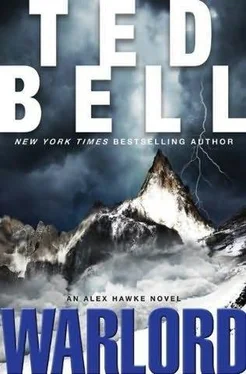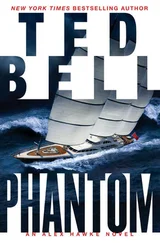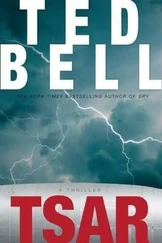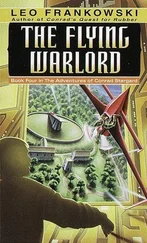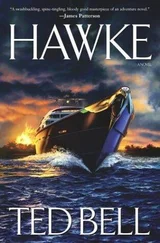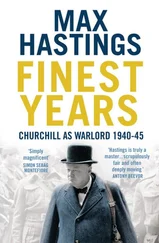"How will he proceed?"
"Horses…the only way up those narrow mountain trails. You need horses, camels, mules, Commander Hawke. Warhorses…and fighters. Seasoned desert fighters. Taliban war parties everywhere, returning since the army's 2008 offensive."
"Where is he heading?"
"Northwest of here. The provinces. Somewhere in the mountains near the village of Chitral. He has a…a command post there. Never been able to find it. There are endless mountains…hundreds of caves and tunnels…all look alike."
The medic put a hand on Hawke's shoulder. "I'm sorry, I have to put an end to this. It doesn't look good, but perhaps…you never know. But the captain needs his strength."
"I understand completely. I'd like to ask him just one more question. Is that all right?"
"Yes, one more."
Hawke bent even closer to the man, putting his lips near what was left of his left ear.
"Have you ever heard of a place called Wazizabad, Captain?"
"Y-yes…of course…a mythical name for one of the highest mountains…but I don't think you can…ascend…"
Hawke knew better than to ask why not. He thanked the medic and let him get back to work.
"Commander," he heard the man whisper as he started to climb out of the ambulance.
"Yes, Captain?"
"Find…Lieutenant Amir, my second-in-command…in that ambulance…if he's still alive, he can help you. He knows those mountains. He can put together a small army of hard militia veterans… men who have fought the Taliban for many years. God go with you, brother."
Hawke, having spoken to Lieutenant Amir, sprinted to the waiting helo, ducking his head as he climbed in and quickly settling into his vacant seat next to the pilot. He buckled himself in, put on his headset, and positioned his lip mike.
"Ever hear of someplace called 'Wazizabad'?" Hawke asked the young American flyer.
"No, sir."
"I have," Stoke said, leaning forward and squeezing Hawke's shoulder. "In fact, I've got a map of the place, boss."
THE EXPEDITION INTO THE NORTHERN provinces took Hawke and his new and very essential accomplice, Abdul Dakkon, three full days to organize and provision. Abdul's answer to every difficult logistical question was "Absolutely, sir!" or "Already done, sir!" Still, Hawke felt the pressure. He had his eye on his watch the entire time, knowing every moment lost meant the missing nuclear weapon might be lost to him forever.
He was also assisted in the time-compressed logistics of the operation by Lieutenant Amir, a small, handsome chap, a veteran, a much-decorated soldier who'd been wounded in the barricade attack, but who seemed impervious to pain. Hawke, in fact, had left him for dead in the Pak ambulance. Many of the men under his command had died in the barrage at the barricade and Amir was eager to seek retribution against the Taliban militants, to help Hawke mount an expedition into the provinces and run them to ground.
After many sat-phone consultations about the impending mission with C back in London, most of them at great length, Hawke's team had chosen the northernmost Pakistani Army outpost, Wanabah, an ancient enclosure of mud and stone, heavily guarded against the frequent Taliban attacks, to ready themselves for the impending journey on horseback. The outpost sat at the very edge of the desert they would have to cross before heading through the valley and up into some of the highest mountains on earth.
C's initial inclination, after consulting with the British Army forces in neighboring Afghanistan, and his CIA and Pentagon counterparts in Washington, had been to call in B-52s and drone air-strikes out of the secret Shamsi AFB to take out the objective. He thought it far too dangerous for Hawke and his small band of fighters to venture alone into a Taliban-infested area where thousands had died. "Pound that mountain into powder and come home safe, Alex," Sir David Trulove had said.
Hawke had patiently explained that there was no hard target yet, only endless mountain ranges. Any one of those mountains might be the command-and-control bunker of Abu al-Rashad, headquarters of the Lion of the Punjab. There would simply be no way to confirm his exact position, his actual presence, or that of the stolen nuclear device, without a boots-on-the-ground incursion and reconnoiter.
Hawke also pointed out that these mountains were home to many non-Taliban Pakistani villages, farmers, and goatherds. Their deaths at the hands of U.S. bombers, he said, would be morally and politically indefensible in the highly charged geopolitical climate of this region and this war.
C extracted a promise from Hawke that as soon as he had this confirmation, and the precise GPS coordinates of the enemy stronghold, he would call in strikes and let the U.S. Air Force do its job. Hawke had no choice but to agree. It was, after all, an order. Hawke's philosophy: always do exactly what you think is necessary and apologize later.
While satellite communications, ammunition, food stores, and water were being assembled for loading onto the camels and pack mules, crash courses were under way. Harry Brock was drilling the militia in the use of the U.S. M4 assault rifle on a makeshift shooting range while both Amir and the newly bearded Abdul Dakkon spent every minute of free time giving horseback riding instruction to the team.
Sahira, it turned out, was an equestrienne, a horsewoman all her life. She had no trouble controlling these fearsome horses, horses descended from the beasts Genghis Khan had ridden out of Mongolia. But camels, she soon learned, required other skills. Simply putting up with nasty, smelly, farting brutes being the least of it.
Lieutenant Amir, who had shed his army uniform for mufti and had asked to be called by his nickname, Patoo, worked with Sahira until she was comfortable with the camels. Or, at least, claimed she was comfortable. She didn't believe any human being could ever be comfortable with camels, and vice versa.
She wasn't one for complaining, Patoo noticed, and it made him somewhat less anxious about having such a beautiful young woman venture deep into enemy territory. He'd spoken to Hawke privately. Hawke understood his concern, but he said her presence would be critical should they find the stolen nuclear device.
Patoo conceded the point, but he looked Hawke straight in the eye and told the Englishman in no uncertain terms that, if she went along, under absolutely no circumstances should they allow the Taliban fighters to take this woman alive.
"You understand what that might mean, Commander Hawke?" Patoo said. "In extreme circumstances? Your obligation?"
Hawke looked at him for a very long time before replying, a searing image of Anastasia being loaded aboard the doomed airship flashing through his mind.
"Lieutenant, there are very few men alive who understand what you mean better than I."
Hawke was all too well aware that, in extremis, he himself would have to kill Sahira before letting her be taken captive. Patoo was right. This woman's unspeakably cruel death at the hands of these animals would be unthinkable. War. He'd given up this hell and tried to end his own life because of the overwhelming pain. Now, he was back in its grip and the heavy consequences were weighing upon him to the point where he had to just shove it all aside and concentrate on the job to be done. The job of the simple warrior.
Stokely Jones had already given their little expeditionary force a name: the Rat Patrol. Some bloody American TV show in the 1960s, he'd told Alex. Chaps in Jeeps with machine guns, three Yanks and one Brit, roaring around in the desert wreaking havoc on Field Marshal Rommel's Afrika Korps. Brock had picked the moniker up, and now everyone was using it.
Stokely Jones had never sat a horse in his whole damn life, and he obviously wasn't very happy about the idea either, Hawke noticed with a grin. The idea of Stoke finally encountering a foe who was bigger and stronger than he was made Stoke nuts.
Читать дальше
